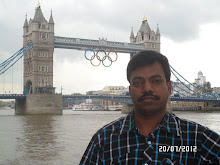Results by motivation –
“I am an
Energy Star”
Show me Results! -- this is something we want
anywhere; at home, work, utility
services; government, students, schools, movies, sports…
How do get the desired results –
carrot or stick? Both? Neither? Luck?
Let me narrate one motivation
strategy I used at my home.
We have
three children at home; one of the constant dialogue I hear at home is “hey, whoever has switched on the
light/fan; switch it off” -- the response from children is generally; “it’s not me” . I have heard these noises many many times. I was telling my children and wife; “who” is not very important; anyone can put off lights / fans / TV when
not in use; these lectures did not work.
I have put a simple motivation strategy; devised a scoring card called “I am an Energy
Star”. This is pasted in the
living room, side of the refrigerator;
the rule is anyone who switches off any energy device which is ON unnecessarily;
will get one star. More the stars, more
the points and children would get a gift.
Believe me, it clicked instantly, and there is a competition to switch OFF devices to gain stars -- sometimes it works too much; even the
necessary lights are put OFF.
Let us switch to organization scenario, as Leaders how are we working with our team
to achieve results – by motivation techniques?
Or stick (if you don’t do this, then… ) approach. Recollect few instances of the approaches you
have practice recently with your colleagues and analyze which has given
sustained results. It will be great if you can share your views and some
examples of this.
Btw, I was sharing this “I am an Energy Star” example with two
of my colleagues recently; they implemented
at home and it worked for them!









